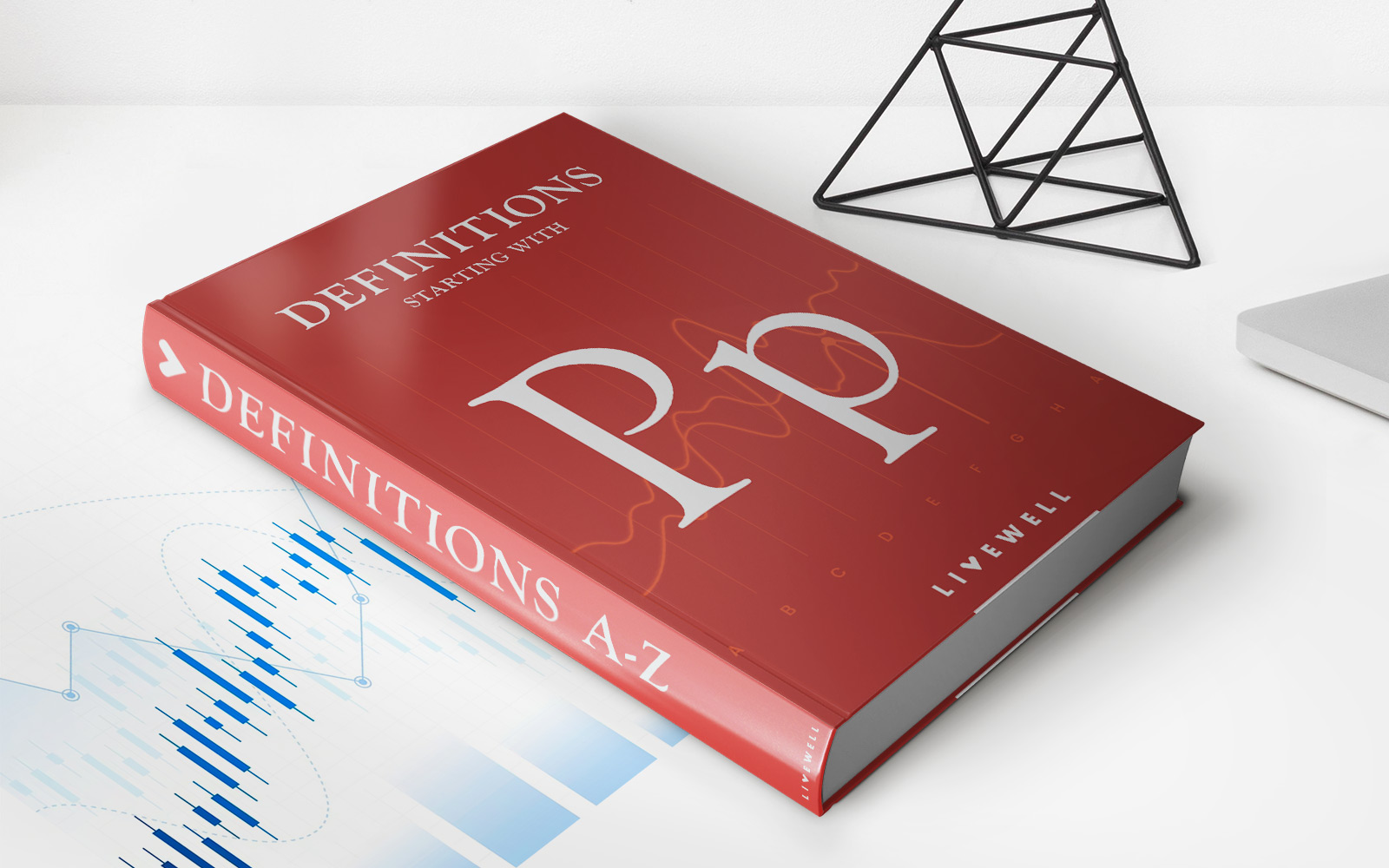Home>Finance>What Happens If You Lie On A Life Insurance Application?


Finance
What Happens If You Lie On A Life Insurance Application?
Modified: February 21, 2024
Find out the consequences of lying on your life insurance application. Protect your finances by understanding the risks involved.
(Many of the links in this article redirect to a specific reviewed product. Your purchase of these products through affiliate links helps to generate commission for LiveWell, at no extra cost. Learn more)
Table of Contents
Introduction
Life insurance is a crucial financial tool that provides financial protection and peace of mind to individuals and their loved ones. When applying for a life insurance policy, applicants are required to fill out a detailed application form that includes personal, medical, and lifestyle information. It is essential to provide accurate and truthful information on the application to ensure the validity of the policy and avoid potential complications down the line.
However, there are instances where some individuals may be tempted to provide false or misleading information on their life insurance application. This could be due to various reasons, such as wanting to secure a policy at a lower premium or hiding certain medical or lifestyle-related factors that could impact the coverage. While it may seem like a harmless act, lying on a life insurance application can have significant repercussions for both the policyholder and their beneficiaries.
In this article, we will explore the consequences of lying on a life insurance application, including the potential voiding of the policy, denial of claims, legal consequences, and the impact on beneficiaries. It is important to understand the implications of dishonesty during the application process to make informed decisions and ensure the long-term validity and effectiveness of your life insurance coverage.
Before we delve into the potential consequences, let’s first gain a better understanding of the life insurance application process and why honesty is vital when completing the application form.
Understanding Life Insurance Applications
When applying for a life insurance policy, individuals are required to complete a detailed application form provided by the insurance company. This application collects essential information about the applicant’s personal, medical, and lifestyle background.
Personal information typically includes details such as age, gender, marital status, and occupation. This information helps insurance providers assess the risks associated with insuring the applicant and determine the appropriate premium. Age and gender, for example, can have an impact on life expectancy and, therefore, the overall risk for the insurer.
Medical information is another crucial component of the application process. Applicants are generally required to disclose their current and past medical conditions, medication usage, history of hospitalizations or surgeries, and any ongoing treatment. This information allows insurance companies to evaluate the applicant’s health status and potential risks involved in providing coverage. They may also request medical examinations or access medical records as part of the underwriting process.
Lifestyle-related questions focus on factors that can affect life expectancy and the likelihood of a claim payout. This may include inquiries about tobacco or alcohol usage, participation in dangerous activities such as extreme sports or hazardous occupations, and travel to high-risk countries or regions. These factors help insurers assess the overall risk associated with providing coverage to the applicant.
It is crucial to complete the life insurance application accurately and honestly. Insurance companies rely on the information provided to assess risk and determine the premium rates. Providing false or misleading information is considered insurance fraud and can have serious consequences.
Next, we will explore the potential consequences of lying on a life insurance application and why it is essential to be transparent during the application process.
The Consequences of Lying on a Life Insurance Application
Lying on a life insurance application can have severe consequences. It is important to understand that insurance policies are contracts based on the principle of utmost good faith. When an applicant provides false or misleading information, they breach this principle, and it can lead to several negative outcomes.
One of the most significant consequences of lying on a life insurance application is the potential voiding of the policy. If an insurance company discovers that false information was provided during the application process, they have the right to cancel the policy. This means that if the policyholder passes away while the policy is in a voided state, the beneficiaries will not receive any death benefit.
Furthermore, lying on a life insurance application can result in the denial of claims. If the insurance company discovers the dishonesty after a claim has been filed, they can deny the payout. This can leave beneficiaries in a vulnerable financial situation, as their expected financial protection is no longer available.
In addition to voiding the policy and denying claims, there can be legal consequences for lying on a life insurance application. Insurance fraud is a serious offense, and individuals found guilty of providing false information may face legal actions or penalties. The exact legal consequences can vary depending on the jurisdiction and the severity of the dishonesty.
Not only does lying on a life insurance application impact the applicant, but it also has implications for the beneficiaries. If the policy is voided or a claim is denied due to dishonesty on the application, the beneficiaries are left without the financial protection they were promised. This can have a significant and long-lasting impact on their lives, potentially causing financial hardship and emotional distress.
It is important to recognize that insurance companies have various means of verifying the information provided on the application. They may request medical records, conduct medical examinations, or utilize data from third-party sources to cross-reference the details provided. Insurance underwriters are skilled at identifying inconsistencies or red flags that may indicate dishonesty.
Next, let’s discuss some of the specific legal consequences that can occur when lying on a life insurance application.
Voiding of the Policy
One of the most significant consequences of lying on a life insurance application is the potential voiding of the policy. When an applicant provides false or misleading information, the insurance company has the right to cancel the policy from its inception. This means that the policy becomes null and void, and the coverage is effectively revoked.
Voiding a life insurance policy due to dishonesty typically occurs when the insurance company discovers the falsified information during the underwriting process or upon investigation of a claim. The discovery can happen at any point during the policy’s term, including after the policyholder’s death.
When a policy is voided, it means that the insurance company will no longer honor any claims made under the policy. The beneficiaries, who were expecting financial protection in the event of the insured’s death, are left without any recourse. This can have devastating consequences, leaving the beneficiaries in a vulnerable financial situation during what is already a difficult time.
It is important to note that the voiding of a policy due to dishonesty is not limited to intentional lies. Even unintentional errors or omissions that are considered material to the underwriting process can result in voiding the policy. Material information refers to information that, if known by the insurance company, would have impacted its decision to provide coverage or determine the premium.
Insurance companies have the responsibility to assess risks accurately and determine appropriate premium rates based on the information provided by the applicant. When false or material information is provided, it undermines the integrity of the contract and the insurer’s ability to accurately assess risk. Voiding the policy is a way for the insurance company to protect itself from fraudulent or misrepresented applications.
It is crucial for applicants to understand the gravity of providing accurate and truthful information on their life insurance application. Failing to do so not only puts the policyholder at risk but also jeopardizes the financial security of their beneficiaries. Transparency and honesty are essential when entering into a life insurance contract to ensure that the policy remains valid and effective throughout its term.
Next, we will explore the potential consequences of lying on a life insurance application in terms of denial of claims.
Denial of Claims
When an individual lies on a life insurance application, there is a significant risk of having their claims denied by the insurance company. If the insurer discovers that false or misleading information was provided during the application process, they have grounds to reject any claims filed under the policy.
Insurance companies thoroughly investigate claims to ensure that the information provided by the applicant aligns with the terms and conditions of the policy. If inconsistencies or inaccuracies are discovered, the insurer may deny the claim, leaving the beneficiaries without the financial protection they were counting on.
Denial of a claim due to dishonesty can have severe consequences for the beneficiaries. They may be left struggling to cover funeral expenses, pay off outstanding debts, or maintain their standard of living without the expected death benefit. This can cause significant financial hardship and emotional distress, compounding the already difficult period following the loss of a loved one.
Insurance companies have various means of verifying the information provided on the application. They may request medical records, conduct investigations, or utilize third-party sources to cross-reference the details provided. If inconsistencies or discrepancies are discovered during the claims process, it can trigger further scrutiny and potential denial of the claim.
It is crucial to understand that insurance companies have a legal obligation to act in good faith and make reasonable investigations when evaluating a claim. If they uncover evidence of dishonesty or material misrepresentation, they have the right to deny the claim based on the breach of the contractual agreement.
It is also important to note that even if the dishonesty or misrepresentation is unrelated to the cause of death, the insurance company can still deny the claim. The accuracy and truthfulness of the information provided on the application form are fundamental to the contract, and any breach of this obligation can result in the denial of a claim.
Denial of a claim can have long-lasting implications for the beneficiaries, potentially leaving them in a dire financial situation. It is essential to provide accurate and truthful information on the life insurance application to ensure that the policy remains valid and the claims process goes smoothly.
Next, let’s discuss the potential legal consequences that individuals may face for lying on a life insurance application.
Legal Consequences
Lying on a life insurance application can have serious legal consequences for the individual involved. Insurance fraud is a criminal offense, and individuals found guilty of providing false information can face legal actions and penalties.
Insurance companies have a legal right to investigate claims and the information provided during the application process. If they uncover evidence of fraud or material misrepresentation, they can pursue legal action against the policyholder. The specific legal consequences can vary depending on the jurisdiction and the severity of the dishonesty.
Legal consequences for lying on a life insurance application may include fines, penalties, or even imprisonment. The severity of the punishment will depend on factors such as the amount of money involved, the extent of the deception, and the intent behind the dishonesty.
In some cases, individuals may face civil lawsuits from the insurance company seeking damages resulting from the false information provided. The insurer may argue that it would not have issued the policy or would have issued it under different terms if the truthful information had been disclosed. This can lead to substantial financial liability for the individual, potentially causing further financial hardship.
It is crucial to be aware that insurance companies have extensive resources and legal teams dedicated to detecting fraud and pursuing legal action. They are skilled at uncovering inconsistencies and red flags during the underwriting process or when investigating a claim. Attempting to deceive the insurance company is a risky endeavor that can have severe consequences on both a personal and legal level.
Additionally, it’s important to note that the legal consequences may extend beyond the individual who lied on the application. In some cases, if multiple individuals are involved in the fraud or have knowledge of it, they can all face legal repercussions.
It is always advisable to be truthful and transparent during the life insurance application process to avoid legal complications. Honesty not only helps to maintain the integrity of the insurance industry but also protects the rights and interests of all parties involved.
Next, let’s discuss the impact of lying on a life insurance application on the beneficiaries.
Impact on Beneficiaries
Lying on a life insurance application can have a significant impact on the beneficiaries who rely on the policy for financial protection. When a policy is voided or a claim is denied due to dishonesty, the beneficiaries are left without the death benefit that they expected to receive.
The financial implications on beneficiaries can be substantial. The death benefit from a life insurance policy is often used to cover funeral expenses, pay off outstanding debts, or provide financial stability for the future. Without this financial support, beneficiaries may face additional financial burdens and struggle to maintain their standard of living.
Moreover, the emotional impact on beneficiaries should not be overlooked. The loss of a loved one is already a difficult and emotionally challenging time. Discovering that the life insurance policy, which was intended to provide financial security, is no longer valid can exacerbate the emotional distress and feelings of vulnerability.
In some cases, beneficiaries may not be aware of the dishonesty on the application until they file a claim. Suddenly being informed that the claim is denied due to false information can be a shock and add further emotional strain during an already trying period.
Additionally, the impact on beneficiaries may extend beyond the immediate financial and emotional consequences. They may also face legal challenges if the insurance company determines that there was a breach of the contract due to dishonesty. In such cases, beneficiaries may need to hire legal representation to navigate the legal proceedings, further adding to their burdens.
It is essential for individuals considering life insurance to understand that the primary purpose of a policy is to provide financial protection to loved ones in the event of their death. By lying on the application, individuals undermine the very purpose of the policy and jeopardize the well-being of those they intended to protect.
To avoid the negative impact on beneficiaries, it is crucial to be honest and transparent when completing a life insurance application. Providing accurate information ensures that the policy remains valid and that the beneficiaries will receive the intended financial support when it is needed the most.
Next, let’s explore alternative options that individuals can consider instead of lying on a life insurance application.
Alternative Options to Consider
When faced with the temptation to lie on a life insurance application, it is important to consider alternative options that can provide adequate financial protection without compromising integrity and risking the consequences of dishonesty.
1. Provide full disclosure: Instead of withholding information or providing false details, it is essential to be transparent and provide full disclosure on the application form. This includes disclosing any pre-existing medical conditions, lifestyle choices, or other relevant factors that may impact the underwriting process. While this may result in a higher premium, it ensures the validity and effectiveness of the policy.
2. Seek professional advice: If you have concerns about the impact of certain factors on your life insurance application, it is advisable to consult with a life insurance agent or broker. They can provide guidance and help you navigate the application process, ensuring that you make informed decisions while maintaining honesty.
3. Explore alternative types of coverage: If you anticipate that certain factors may result in a higher premium or potential exclusions, consider exploring alternative types of coverage. For example, there are specialized policies available for individuals with pre-existing medical conditions or high-risk lifestyles. These policies may have different underwriting criteria tailored to specific circumstances.
4. Consider group life insurance: If individual coverage poses challenges or is financially burdensome due to specific circumstances, such as health issues, consider exploring group life insurance options. Many employers offer group life insurance as part of their benefits package. Group coverage typically does not require medical underwriting and can provide a more affordable and accessible option.
5. Review existing coverage: If you already have a life insurance policy and are considering lying on a new application to secure additional coverage, it may be more beneficial to review your existing policy. Determine if the coverage amount is sufficient and consider discussing potential policy adjustments with your insurance provider. This can help ensure that you have adequate protection without resorting to dishonesty.
By exploring these alternative options, individuals can find solutions that provide the necessary financial protection while maintaining honesty and integrity in the application process. It is crucial to prioritize the long-term validity and effectiveness of the policy to safeguard the interests of both the policyholder and the beneficiaries.
Finally, let’s summarize the key points discussed in this article.
Conclusion
Lying on a life insurance application can have severe consequences that can impact both the policyholder and their beneficiaries. It is crucial to approach the application process with honesty, transparency, and a commitment to fulfilling the principle of utmost good faith.
Providing false or misleading information on a life insurance application can result in the voiding of the policy, denial of claims, legal consequences, and significant financial and emotional distress for the beneficiaries. It is a breach of the contractual agreement and can lead to loss of financial protection when it is needed the most.
Instead of resorting to dishonesty, individuals should consider alternative options such as providing full disclosure, seeking professional advice, exploring alternative types of coverage, considering group life insurance, or reviewing existing coverage. These options allow for adequate financial protection while maintaining integrity and ensuring the validity of the policy.
It is crucial to understand that insurance companies have methods to verify the information provided on the application. Attempting to deceive the insurer is a risky endeavor that can have severe consequences, including legal actions and penalties.
By approaching the life insurance application process with honesty, individuals can ensure that they fulfill their obligations and protect the well-being of their beneficiaries. Life insurance is designed to provide financial security during difficult times, and maintaining integrity is essential to uphold the true purpose of these policies.
Choosing honesty over dishonesty may require individuals to pay higher premiums or explore alternative forms of coverage. However, the peace of mind and security that come with knowing their policy is valid and their loved ones will be taken care of in the event of their passing is invaluable.
In conclusion, lying on a life insurance application is not worth the potential consequences. It is important to prioritize honesty, transparency, and ethical conduct throughout the application process to ensure the long-term validity and effectiveness of the policy, protecting both the policyholder and their beneficiaries.














